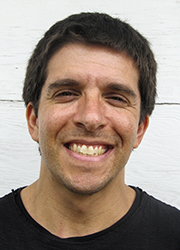Cleveland Clinic presents 'health challenge' to residents

The Cleveland Clinic has issued a challenge to foster healthy lifestyles in three Greater Cleveland communities. It's now up to citizens in these neighborhoods to take up the gauntlet, program creators say.
The Clinic's summer health challenge launches on June 4 in Cleveland's Fairfax, Glenville and Hough neighborhoods. Over six weeks, neighborhood team members are encouraged to undergo health screenings and attend various health, wellness and exercise sessions at partner institutions, with participants earning points for individual activities.
Everyone who completes the challenge will receive certificates and prizes, say program managers and Clinic staff members Chantel Wilcox and Marsha Thornton. Teams with the most overall points after six weeks will be the winner of a special neighborhood trophy. The idea is to offer a bit of fun and sportsmanship around a serious issue, say event creators.
"You can't just put a health center somewhere and provide programming," says Wilcox. "You have to give an opportunity for people to be engaged in changing their lifestyle."
The challenge kickoff will be held at the hospital system's Langston Hughes Health and Education Center, 2390 East 79th Street on June 4 at 11 a.m.
Mammography and blood pressure screenings, HIV support and diabetes education will be among the available services for participants age 18 and up. Community partners including Fairfax Renaissance Development Center, Glenville Recreation Center and Thurgood Marshall Recreation Center, meanwhile, will offer health-minded competitors free exercise classes and work-out equipment.
Programming is targeted toward people with chronic physical issues as well as their caregivers.
"Often it's going to be caregivers who are motivating those with chronic diseases," says Wilcox.
Next month's program will mark the health challenge's third iteration since 2015. Last winter's version drew 200 participants, a figure organizers hope to double this time around.
A lack of efficiency in how traditional care is delivered compelled Clinic officials to create the challenge. As lack of health education is a major reason for wellness disparities among economic groups, access to health services can effectively alter lifestyles and even lead to unforeseen outcomes.
"We've had three participants who've stopped smoking," Wilcox says. "The program engages and encourage people to go further (than six weeks) and keep this going."

